USD 11000 to USD 15000
A kidney transplant is necessary when an individual undergoes end-stage renal disease (ESRD) or significant kidney failure, generally caused by conditions such as diabetes, high blood pressure, polycystic kidney disease, glomerulonephritis, lupus, or other inherited disorders.
| City | Minimum Cost (USD) | Minimum Cost (INR) | Maximum Cost (USD) | Maximum Cost (INR) |
|---|---|---|---|---|
| Kochi | USD 8800 | 731720 | USD 12000 | 997800 |
| Ahmedabad | USD 9900 | 823185 | USD 13500 | 1122525 |
| Pune | USD 9900 | 823185 | USD 13500 | 1122525 |
| Mumbai | USD 11000 | 914650 | USD 15000 | 1247250 |
| Noida | USD 11000 | 914650 | USD 15000 | 1247250 |
| Hyderabad | USD 11000 | 914650 | USD 15000 | 1247250 |
| Country | Minimum Cost | Minimum Local Currency | Maximum Cost | Maximum Local Currency |
|---|---|---|---|---|
| India | USD 11000 | INR 914650 | USD 15000 | INR 1247250 |
| Thailand | USD 28000 | THB 998200 | USD 40000 | THB 1426000 |
| Turkey | USD 16000 | TRY 482240 | USD 24000 | TRY 723360 |
| United Arab Emirates | - | - | USD 30000 | AED 110100 |
Treatment cost

Some of the key inclusions which we provide as additional benefits of the package are:
We offer packages at reasonable pricing that include a variety of additional advantages, making it a better deal than paying for individual perks at the hospital. Kidney Transplant Surgery is a surgical process wherein a healthy kidney from a living or deceased donor is placed into a person�s body whose existing kidney is no longer functioning properly. There are five kidney failure stages and patients with end-stage renal diseases (fifth stage), undergo a kidney transplant. The surgery will once again, help your body to filter & remove waste, minerals & fluids from the blood by producing urine., For Kidney Transplant Surgery in India, we are providing the best all-inclusive discounted package at Max Super Specialty Hospital, Vaishali with some additional benefits.

Some of the key inclusions which we provide as additional benefits of the package are:
We offer packages at reasonable pricing that include a variety of additional advantages, making it a better deal than paying for individual perks at the hospital. Kidney Transplant Surgery is a surgical process wherein a healthy kidney from a living or deceased donor is placed into a persons body whose existing kidney is no longer functioning properly. There are five kidney failure stages and patients with end-stage renal diseases (fifth stage), undergo a kidney transplant. The surgery will once again, help your body to filter & remove waste, minerals & fluids from the blood by producing urine., For Kidney Transplant Surgery in India, we are providing the best all-inclusive discounted package at Fortis Hospital, Noida with some additional benefits.
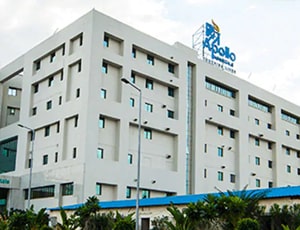
Types of Kidney Transplant in Apollo Hospital and its associated cost
| Treatment Option | Approximate Cost Range (USD) | Approximate Cost Range (INR) |
|---|---|---|
| Overall Kidney Transplant Cost | 13550 - 27973 | 1108110 - 2267835 |
| Living Donor Kidney Transplant | 13398 - 22864 | 1130707 - 1819808 |
| Deceased Donor Kidney Transplant | 16704 - 28238 | 1409276 - 2265066 |
DOCTORS IN 13 SPECIALITIES
FACILITIES & AMENITIES
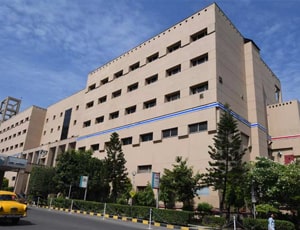
Types of Kidney Transplant in Apollo Multispecialty Hospitals and its associated cost
| Treatment Option | Approximate Cost Range (USD) | Approximate Cost Range (INR) |
|---|---|---|
| Overall Kidney Transplant Cost | 13386 - 28387 | 1119836 - 2319867 |
| Living Donor Kidney Transplant | 13482 - 22767 | 1090339 - 1827872 |
| Deceased Donor Kidney Transplant | 16706 - 28137 | 1360199 - 2341553 |
DOCTORS IN 13 SPECIALITIES
FACILITIES & AMENITIES
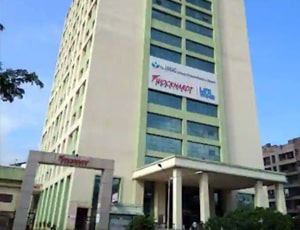
Types of Kidney Transplant in Wockhardt Hospital, Umrao and its associated cost
| Treatment Option | Approximate Cost Range (USD) | Approximate Cost Range (INR) |
|---|---|---|
| Overall Kidney Transplant Cost | 12193 - 25357 | 1001649 - 2077545 |
| Living Donor Kidney Transplant | 12147 - 20265 | 996097 - 1661930 |
| Deceased Donor Kidney Transplant | 15262 - 25400 | 1252949 - 2079269 |
DOCTORS IN 13 SPECIALITIES
FACILITIES & AMENITIES

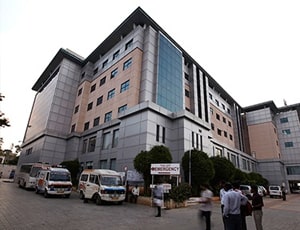
Types of Kidney Transplant in BGS Gleneagles Global Hospitals and its associated cost
| Treatment Option | Approximate Cost Range (USD) | Approximate Cost Range (INR) |
|---|---|---|
| Overall Kidney Transplant Cost | 13762 - 28218 | 1086162 - 2290757 |
| Living Donor Kidney Transplant | 13547 - 22770 | 1083495 - 1808389 |
| Deceased Donor Kidney Transplant | 17146 - 28718 | 1400765 - 2272880 |
DOCTORS IN 14 SPECIALITIES
FACILITIES & AMENITIES

Types of Kidney Transplant in Indraprastha Apollo Hospital and its associated cost
| Treatment Option | Approximate Cost Range (USD) | Approximate Cost Range (INR) |
|---|---|---|
| Overall Kidney Transplant Cost | 13629 - 28673 | 1120614 - 2270643 |
| Living Donor Kidney Transplant | 13625 - 22384 | 1120683 - 1822145 |
| Deceased Donor Kidney Transplant | 16668 - 28685 | 1369953 - 2293373 |
DOCTORS IN 14 SPECIALITIES
FACILITIES & AMENITIES
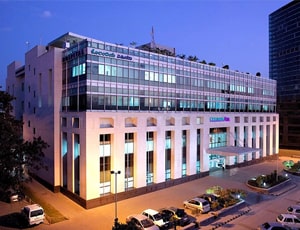
Types of Kidney Transplant in Manipal Hospital, Yeshwantpur and its associated cost
| Treatment Option | Approximate Cost Range (USD) | Approximate Cost Range (INR) |
|---|---|---|
| Overall Kidney Transplant Cost | 13749 - 28476 | 1100183 - 2302242 |
| Living Donor Kidney Transplant | 13203 - 22953 | 1085216 - 1822451 |
| Deceased Donor Kidney Transplant | 16878 - 28105 | 1361578 - 2341533 |

Types of Kidney Transplant in VPS Lakeshore Hospital and its associated cost
| Treatment Option | Approximate Cost Range (USD) | Approximate Cost Range (INR) |
|---|---|---|
| Overall Kidney Transplant Cost | 12185 - 25340 | 1001444 - 2085518 |
| Living Donor Kidney Transplant | 12238 - 20363 | 1001126 - 1672011 |
| Deceased Donor Kidney Transplant | 15291 - 25273 | 1250073 - 2087407 |
DOCTORS IN 13 SPECIALITIES
FACILITIES & AMENITIES
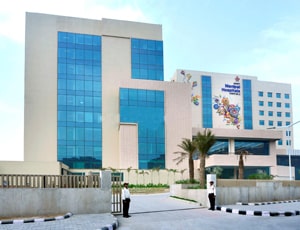
Types of Kidney Transplant in Manipal Hospital, Dwarka and its associated cost
| Treatment Option | Approximate Cost Range (USD) | Approximate Cost Range (INR) |
|---|---|---|
| Overall Kidney Transplant Cost | 12192 - 25354 | 996194 - 2077187 |
| Living Donor Kidney Transplant | 12121 - 20284 | 995685 - 1668167 |
| Deceased Donor Kidney Transplant | 15202 - 25398 | 1254458 - 2076903 |
DOCTORS IN 13 SPECIALITIES
FACILITIES & AMENITIES

Types of Kidney Transplant in Dr. Rela Institute and Medical Centre and its associated cost
| Treatment Option | Approximate Cost Range (USD) | Approximate Cost Range (INR) |
|---|---|---|
| Overall Kidney Transplant Cost | 13414 - 28455 | 1106407 - 2317302 |
| Living Donor Kidney Transplant | 13682 - 22854 | 1091835 - 1831333 |
| Deceased Donor Kidney Transplant | 16742 - 27549 | 1387626 - 2282146 |
SPECIALITIES
FACILITIES & AMENITIES

Types of Kidney Transplant in Sarvodaya Hospital and Research Centre and its associated cost
| Treatment Option | Approximate Cost Range (USD) | Approximate Cost Range (INR) |
|---|---|---|
| Overall Kidney Transplant Cost | 12154 - 25372 | 1000010 - 2072158 |
| Living Donor Kidney Transplant | 12200 - 20287 | 999177 - 1663143 |
| Deceased Donor Kidney Transplant | 15257 - 25381 | 1243688 - 2089045 |
DOCTORS IN 14 SPECIALITIES
FACILITIES & AMENITIES
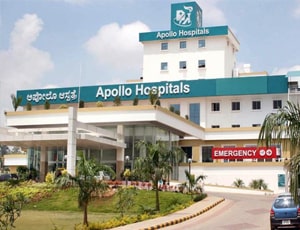
Types of Kidney Transplant in Apollo Hospitals Bannerghatta and its associated cost
| Treatment Option | Approximate Cost Range (USD) | Approximate Cost Range (INR) |
|---|---|---|
| Overall Kidney Transplant Cost | 13759 - 27511 | 1106103 - 2327873 |
| Living Donor Kidney Transplant | 13669 - 22160 | 1096995 - 1838988 |
| Deceased Donor Kidney Transplant | 16898 - 28260 | 1374031 - 2272142 |
DOCTORS IN 13 SPECIALITIES
FACILITIES & AMENITIES

Types of Kidney Transplant in Fortis Hospital and its associated cost
| Treatment Option | Approximate Cost Range (USD) | Approximate Cost Range (INR) |
|---|---|---|
| Overall Kidney Transplant Cost | 12122 - 25423 | 995167 - 2087591 |
| Living Donor Kidney Transplant | 12123 - 20373 | 998173 - 1669302 |
| Deceased Donor Kidney Transplant | 15186 - 25349 | 1248146 - 2083039 |
DOCTORS IN 12 SPECIALITIES
FACILITIES & AMENITIES
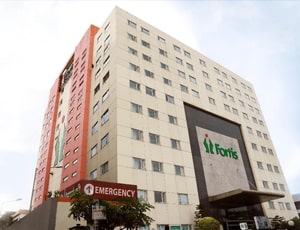
Types of Kidney Transplant in Fortis Hospital and its associated cost
| Treatment Option | Approximate Cost Range (USD) | Approximate Cost Range (INR) |
|---|---|---|
| Overall Kidney Transplant Cost | 12138 - 25369 | 994386 - 2077254 |
| Living Donor Kidney Transplant | 12195 - 20233 | 996447 - 1669385 |
| Deceased Donor Kidney Transplant | 15251 - 25438 | 1247695 - 2072588 |
DOCTORS IN 12 SPECIALITIES
FACILITIES & AMENITIES
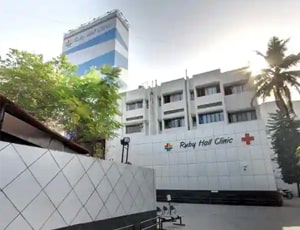
Types of Kidney Transplant in Ruby Hall Clinic and its associated cost
| Treatment Option | Approximate Cost Range (USD) | Approximate Cost Range (INR) |
|---|---|---|
| Overall Kidney Transplant Cost | 11141 - 23721 | 916444 - 1897275 |
| Living Donor Kidney Transplant | 11349 - 18706 | 926772 - 1522865 |
| Deceased Donor Kidney Transplant | 14154 - 23048 | 1149941 - 1940009 |
DOCTORS IN 13 SPECIALITIES
FACILITIES & AMENITIES
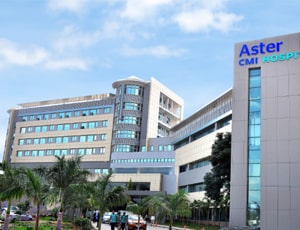
Types of Kidney Transplant in Aster CMI Hospital and its associated cost
| Treatment Option | Approximate Cost Range (USD) | Approximate Cost Range (INR) |
|---|---|---|
| Overall Kidney Transplant Cost | 12140 - 25496 | 997865 - 2073903 |
| Living Donor Kidney Transplant | 12212 - 20215 | 996001 - 1666744 |
| Deceased Donor Kidney Transplant | 15274 - 25351 | 1242882 - 2072904 |
DOCTORS IN 13 SPECIALITIES
FACILITIES & AMENITIES
A kidney transplant is a surgery where a healthy kidney from a living or deceased donor is placed into someone whose own kidneys aren't working properly. The kidneys, shaped like beans and located on each side of the spine below the ribs, normally filter waste and fluid from the blood to make urine.
The kidney performs several important functions in the human body. Even slight damage to the kidneys can, therefore, cause a lot of problems. When the kidney is rendered incapable of its main function, that is, removal of waste products from the blood, a condition called uremia develops.
Unfortunately, the symptoms of this condition do not develop unless 90 percent of the kidney is damaged. This is the time when an individual would require kidney transplantation surgery or dialysis to restore normal functioning.
Several other kidney diseases warrant the need for a kidney transplantation. Some of these conditions include the following:
During a kidney transplant, the surgery is performed under the influence of general anesthesia, and the surgical team keeps an eye on your heart rate, blood pressure, and oxygen levels.
The surgeon cuts the lower side of your abdomen, puts the new kidney inside, and leaves your kidneys unless they're causing issues. They connect the new kidney's blood vessels to yours and link the ureter (tube from the kidney to the bladder) to your bladder.
During the kidney transplant procedure, an intravenous line is initiated in the hand or arm, and catheters are connected to the wrist and neck to check the blood pressure, and heart status and take samples of blood. The groin or region below the collarbone can also be used for insertion of catheters.
The hair is shaved off or cleared in the region of the surgical site and a urinary catheter is inserted into the bladder. The patient is positioned on the operating table lying on their back. After the administration of general anesthesia, a tube is positioned into the lungs through the mouth. This tube is attached to a ventilator so that the patient can breathe during the surgery.
The anesthesiologist closely monitors the blood oxygen level, breathing, heart rate, and blood pressure. The site of the incision is cleaned with an antiseptic solution. A long incision is made by the doctor on one side of the lower abdomen. The donor's kidney is visually inspected before implantation.
Now the donor's kidney is placed in the abdomen. Usually, the left donor kidney is implanted on the right side and vice versa. This leaves the scope to connect ureters with the bladder. To the external iliac artery and vein, the renal artery and vein of the donor's kidney are sewn.
The donor ureter is then connected to the urinary bladder of the patient. With surgical staples and stitches, the incision is closed and a drain is positioned at the incision site to prevent swelling. Lastly, a sterile bandage or dressing is placed.
Post-surgery, Patients are required to spend several days to weeks in the hospital depending upon the situation, Healthcare professionals monitor the conditions in the recovery area to observe any signs of complications.
Patients also have to be in frequent follow-up sessions for a few weeks after hospital discharge. You may be required to have a blood test several times a week.
Immunosuppressive agents that fight rejection prevent this from happening. These medications have been prescribed by doctors to transplanted patients for their lifetime. The kidney transplant success rate is challenged if these medications are stopped. A combination of drugs is usually recommended.
The patient is encouraged to take small steps and start walking and moving a bit. The kidney transplant recovery period lasts for around two to three weeks after the surgery, after which the patient may return to normal life.
Ask your healthcare adviser for the best multiple options and choose the one that meets your expectations
On an average, Kidney Transplant in India costs about USD$ 13000.
The cost of kidney transplant surgery in India includes the type of transplant (living or deceased donor), with living donor transplants generally being more expensive. Additionally, donor charges, covering the donor's medical treatment, and the surgeon's fee, varying based on expertise, contribute to the overall cost. Hospital charges, location, and the duration of the patient's stay, along with post-treatment medications and rehabilitation costs, further impact the total treatment cost.
There are about 50 hospitals in India that offer Kidney Transplant to international patients. Some of the best hospitals are the following:
After surgery, the patient is supposed to stay in for another 45 days. This duration of stay is recommended to complete all the necessary follow-ups and control tests to ensure that the surgery was successful.
After Kidney Transplant, the patient is supposed to stay for about 7 days in the hospital for recovery and monitoring.
The average rating of hospitals for Kidney Transplant in India is 4.5. This rating is automatically calculated on the basis of several parameters such as the infrastructure of the hospital, quality of services, nursing support and other services.
The country is renowned for its brigade of skilled and experienced surgeons who are known for their vision and clinical expertise. Some of the globally renowned doctors for a kidney transplant in India include the following:
India has the highest success rate of kidney transplant in the world. The current success rate is about 90%. There are several factors that affect the overall success rate of a kidney transplant, such as the expertise of the surgical as well as post-operative care teams, the choice of hospital, compatibility of the donor, the tissue matching , whether the donor is blood-related, and many more. Post-surgical infections are a big risk that could affect the success rate, therefore; choosing a hospital with the best hygiene standards is important to make sure you don’t get any infections.
Some important tests are performed before performing kidney transplantation in India. These tests are required to know tissue matching.
There are two types of renal transplants available in India depending on the source of availability of the kidney.
Most of the kidney transplant hospitals in India are equipped with the latest medical equipment and ultra-modern infrastructure. These hospitals feature highly experienced and skilled surgeons who provide the best care and the highest quality healthcare. The cost of kidney transplant surgery in India varies between USD 7,000 and USD 10,500, whereas in other countries, it can range around USD 400,000. India boasts a vast network of top hospitals, ranging from mid-range facilities to world-class medical centers and state-owned hospitals, offering comprehensive medical care. This diversity helps patients choose a hospital based on their budget, city preference, and the surgeon.
The Indian authorities follow strict rules for organ donation and transplantation. If anybody is found guilty, he/she needs to pay a heavy penalty. When the individual situation along with all of the legal records is evaluated by the transplantation team, they go ahead with the treatment. Besides this, living donors have been categorized as:
The Indian laws also ensure the kidney transplantation is ethically performed in India without any commercial interest.
As an international patient, you need to have your donor along with you. In India, living donor transplant is allowed in 2 kinds. i.e., non-related and associated donors, below given are some records which the donor and the recipient should carry. For Related Donors, the Essential record of files are:
Patients will have to bring all of the important medical papers. With several steps required with the kidney transplant, the procedure begins with the evaluation procedure to check whether you are fully prepared for the transplant after finding the donor. Before the evaluation procedure, you have to choose a transplant center. To find out whether you’re eligible for a kidney transplant, you will have to undergo a test procedure by the transplant team. Before proceeding with the transplant, the patient has to undergo many tests to ensure the new kidney is accepted by the immune system.